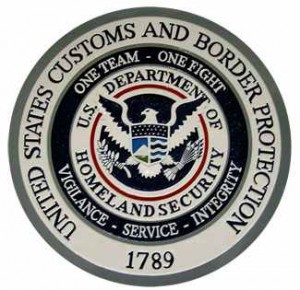CBP Ensures Pest-free Flowers for Valentine’s Day
Written by Post Public Information Representative, Feb 13, 2017, Comments Off
LAREDO, Texas – With Valentine’s Day 2017 just around the corner, U.S. Customs and Border Protection’s highly skilled agriculture specialists continue to pore through millions of arriving cut flower stems to ensure that plant diseases and plant pests are detected and stopped from being introduced into the United States where they could cause harm.
At international ports of entry, land borders and mail facilities, CBP agriculture specialists are the front line in the fight against the introduction of harmful insects and diseases into the United States.
“Our CBP agriculture specialists are well versed in the sciences and their examination work is critical in preventing microscopic pests which have no known predators from entering our country. If these pests establish themselves in the U.S. they could cause serious ecological and economic harm to the floral industry,” said Director, Field Operations David P. Higgerson, Laredo Field Office.
At South Texas area ports of entry, the most commonly prohibited flowers and plant materials are chrysanthemums and choysia (an ornamental filler). These items are not allowed to enter the U.S. from Mexico because they are known to harbor harmful pests and diseases.
Individuals purchasing floral arrangements in Mexico for transport to the U.S. should advise their florist so prohibited plant species will not be used in the arrangement. And as a reminder, all agricultural items should be declared upon entry.
CBP processed approximately 940 million cut flower stems during the 2016 Valentine’s season from Jan. 1 to Feb. 14 and intercepted 2,441 pests. At Laredo Port of Entry’s cargo facilities, CBP during that same period processed 11.7 million stems, the fifth largest facility by volume for cut flower importations nationwide.




